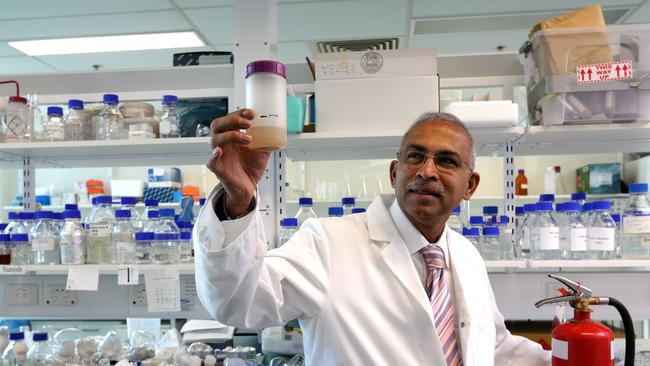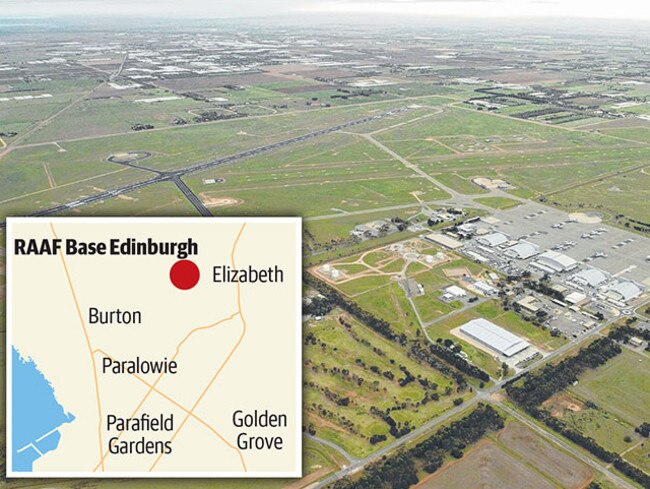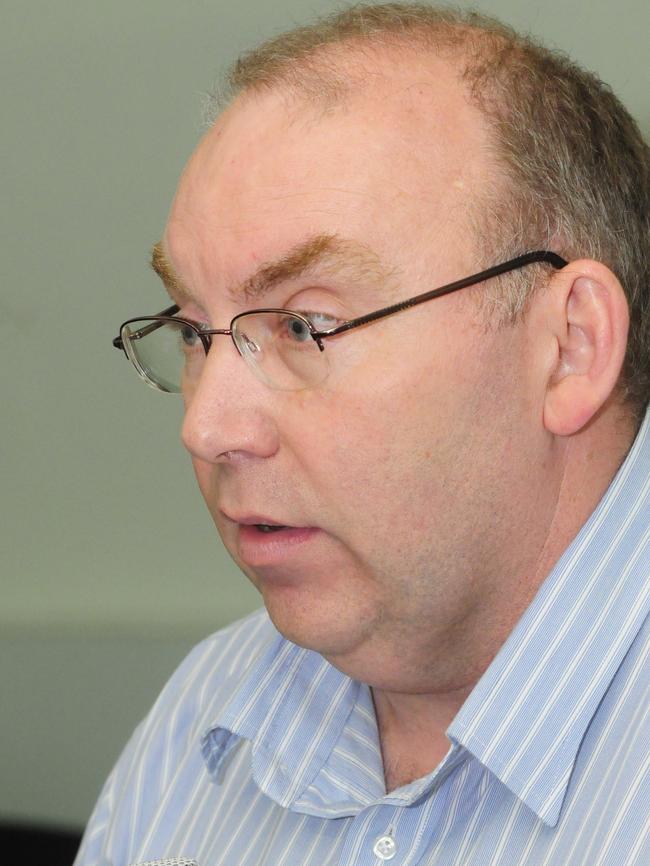Experts say cancer causing toxins may have already leached into wetland system used to irrigate parks and ovals in Adelaide’s north
TOXINS that can cause cancer may have leached into a major wetland system used to irrigate parks and ovals in Adelaide’s north — and the consequences could be dire, experts have warned.

SA News
Don't miss out on the headlines from SA News. Followed categories will be added to My News.
TOXINS that can cause cancer may have leached into a major wetland system used to irrigate parks and ovals in Adelaide’s north — and the consequences could be dire, experts have warned.
The Defence Department says it is analysing samples from bores and open watercourses near the Edinburgh RAAF base as part of an investigation into potential site contamination at the air force headquarters.
It is assessing whether harmful chemicals — perfluorooctane sulfonate (PFOS) and perfluorooctanoic acid (PFOA) — are present at the base and is also checking if toxins have seeped into waterways.
The move has prompted the Environment Protection Authority to approach Salisbury Council to run special tests on the Kaurna Wetlands, south of the base, to check for contamination.
A water course that that runs along the north and northwestern edge of the base flows into the wetlands, about 6km away in Burton.
Water from the wetlands, on Waterloo Corner Rd, is used to irrigate ovals, parks and trees across the district, according to Salisbury Council’s website.
Environmental experts say there could be dire consequences if the wetland has been contaminated by PFOA and PFOS.
Professor Ravi Naidu, from independent contamination research and assessment organisation CRC Care, said if the chemicals had leached into the watercourse near the base, they could easily make their way along the waterway and into the wetland.
He said PFOS and PSOA would kill microorganisms and algae, as well as earthworms, in wetlands, stopping it from cleansing the water property, poisoning fish and depleting their food supply.

Professor Naidu said if this contaminated water was used on parks and ovals, the toxins would be transferred to users of these facilities.
“If contaminated water is used for irrigation, such contaminants could be transferred onto soil and onto the oval where grass is growing,” he said.
“Depending on the extent of contamination, people and animals could be exposed as well.”
Professor Naidu said low levels of PFOS and PSOA are commonly found in non-sticking cooking utensils as well as other household items, however, if anyone believes they have been exposed to higher levels they should visit their doctor for a blood test for check.
Adelaide University public health scientist and risk assessor Len Turczynowicz agreed the chemicals could readily move into waterways and travel long distances, putting animals and wetlands at risk.
“Because of their persistence and long-term accumulation, higher trophic level wildlife such as fish, piscivorous birds and other biota can continue to be exposed to PFOS and PFOA,” he said.
Mr Turczynowicz said continued exposure would also result in a build-up of the chemicals in people and people should avoid contact with contaminated water.
Salisbury Council released a statement saying water quality in the wetland was monitored by a computerised control system.
“This system can automatically shut down water harvesting if the water quality does not meet the licence quality standard,” it read.
“However, many potential pollutants require a sample of water to be sent to specialist water quality laboratories for analyses.”
The council did not respond to a request to provide a list of parks and ovals irrigated by the Kaurna Wetlands.
Environment Protection Authority spokesman Peter Dolan confirmed the council’s routine tests did not check for PFOS.

“The EPA has been in discussions with the City of Salisbury about further water quality testing for its wetlands,” he said.
A Defence Department spokeswoman said about 10 samples would be taken from various sites in and around the Edinburgh base and results would be known by the end of July.
PFOS and PFOA were used in firefighting foams at the base until 2004.
The spokeswoman said the department has an Exposure Evaluation Scheme where staff can voluntarily register if they had any concerns about contamination risks.
“The scheme is open to current and former employees who suspect that they have been exposed to a hazardous chemical,” she said.
According to the federal Health Department, the effects of the chemicals on humans is unknown but it warns people to limit their exposure as a precaution.
Studies have suggested that prolonged exposure to relatively high levels of the chemicals may cause cancer in animals.
The Victorian Country Fire Authority’s Fiskville Training Centre was closed last year after a cancer cluster — believed to have been caused by PFOS — was discovered among people who had lived and worked there since the 1970s.
The Victorian Government last month announced that it would pay compensation to those at the centre who had fallen ill.
The Queensland town of Oakey also has a crisis, involving toxic levels of PFOS and PFOA leaching from an air force base and into the town’s underground water supply, contaminating properties, livestock and residents.
Groundwater contamination has also been discovered around the Williamtown RAAF base in New South Wales.


